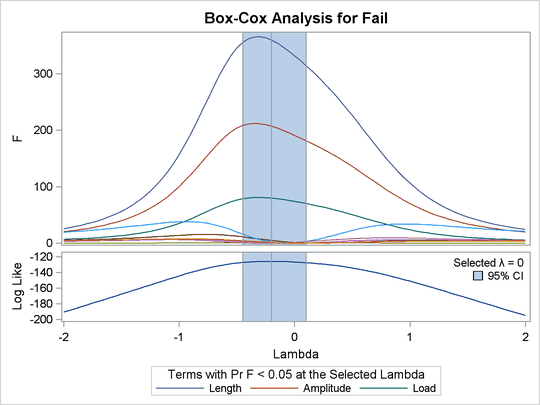Box-Cox Transformation Plot with PROC TRANSREG
This example is taken from Example 97.2 of Chapter 97: The TRANSREG Procedure. The following statements create a SAS data set that contains failure times for yarn:
proc format; value a -1 = 8 0 = 9 1 = 10; value l -1 = 250 0 = 300 1 = 350; value o -1 = 40 0 = 45 1 = 50; run; data yarn; input Fail Amplitude Length Load @@; format amplitude a. length l. load o.; label fail = 'Time in Cycles until Failure'; datalines; 674 -1 -1 -1 370 -1 -1 0 292 -1 -1 1 338 0 -1 -1 266 0 -1 0 210 0 -1 1 170 1 -1 -1 118 1 -1 0 ... more lines ... ;
The following statements run PROC TRANSREG:
ods graphics on;
proc transreg data=yarn;
model BoxCox(fail / convenient lambda=-2 to 2 by 0.05) =
qpoint(length amplitude load);
run;
The log-likelihood plot in Figure 21.9 suggests a Box-Cox transformation with ![]() .
.
Figure 21.9: Box-Cox “Significant Effects”
